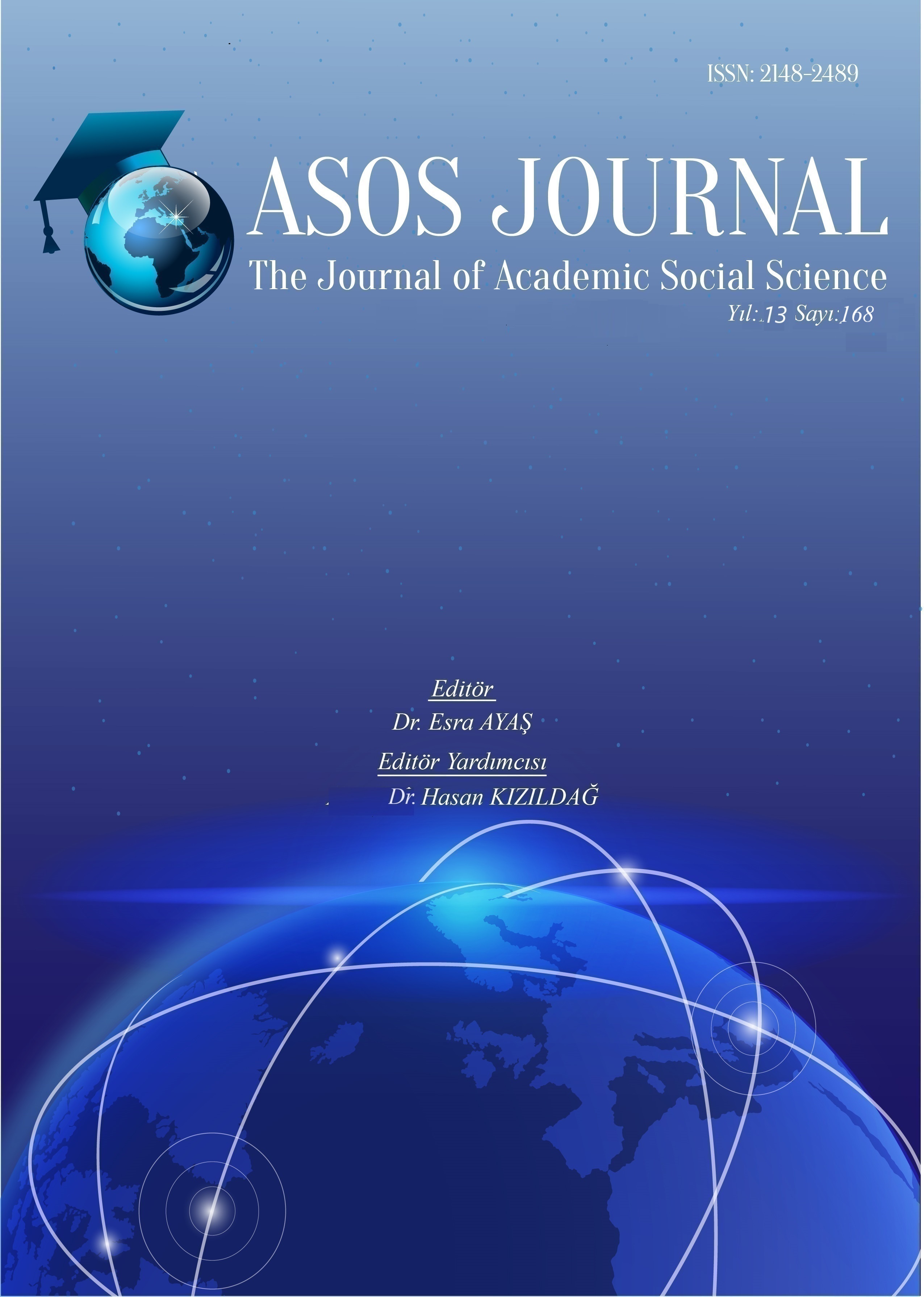TÜRK EDEBİYATINDA EKO-DİSTOPYA OKUMALARININ LİSE ÖĞRENCİLERİNDE İKLİM DEĞİŞİKLİĞİ FARKINDALIĞI VE KAYGISINA ETKİSİ
Author :
Abstract
Bu çalışma, Türk edebiyatında yer alan eko-distopya türü öykülerin lise öğrencilerinin iklim değişikliği farkındalığı ve çevresel kaygı düzeyleri üzerindeki etkilerini incelemeyi amaçlamaktadır. Araştırma kapsamında, İstanbul 2099 adlı eserde yer alan üç öykü (“Günübirlikçiler”, “Sur” ve “Nora’nın Yosunları”) öğrencilere okutulmuş ve bu öykülerin çevresel farkındalığı artırma ile çevresel kaygıyı olumlu davranış eğilimine dönüştürme potansiyeli değerlendirilmiştir. Araştırmada karma araştırma yöntemlerinden eş zamanlı karma yöntem deseni kullanılmış; ön test-son test uygulamaları, SPSS analizleri ve odak grup görüşmeleri yoluyla nitel ve nicel veriler toplanmıştır. Bulgular, eko-distopya türü kurguya dayalı edebi metinlerin katılımcıların iklim değişikliği farkındalık düzeylerinde anlamlı bir artış sağladığını (p < .05) ve çevresel kaygının bireysel eyleme geçme eğilimiyle ilişkili olduğunu göstermektedir. Katılımcıların, okuma etkinlikleri öncesinde iklim değişikliği hakkında temel bilgiye sahip oldukları, ancak öykülerin bu bilginin derinleşmesine ve konuya yönelik bilişsel ve duyuşsal farkındalığın gelişmesine katkı sunduğu belirlenmiştir. Özellikle öykülerdeki gerçekçi ve çarpıcı distopik sahnelerin öğrencilerde hem duygusal hem de bilişsel düzeyde etkiler yarattığı, bu etkinin bireysel ve toplumsal düzeyde daha bilinçli çevresel davranış geliştirme isteğini tetiklediği sonucu söylenebilir
Keywords
Abstract
This study aims to examine the effects of eco-dystopian stories in Turkish literature on high school students' awareness of climate change and levels of environmental concern. Within the scope of the research, three stories from the work Istanbul 2099 (“Day Trippers,” “Sur,” and “Nora's Seaweed”) were read to students, and the potential of these stories to increase environmental awareness and transform environmental concern into positive behavioral tendencies was evaluated. The study employed a concurrent mixed-methods design from mixed research methods; qualitative and quantitative data were collected through pre-test-post-test applications, SPSS analyses, and focus group interviews. The findings indicate that literary texts based on eco-dystopian fiction significantly increased participants' awareness of climate change (p < .05) and that environmental concern is associated with a tendency toward individual action. It was determined that participants had basic knowledge about climate change prior to the reading activities, but the stories contributed to deepening this knowledge and developing cognitive and emotional awareness of the subject. In particular, it can be concluded that the realistic and striking dystopian scenes in the stories created both emotional and cognitive effects in students, triggering a desire to develop more conscious environmental behavior at both the individual and societal levels.





